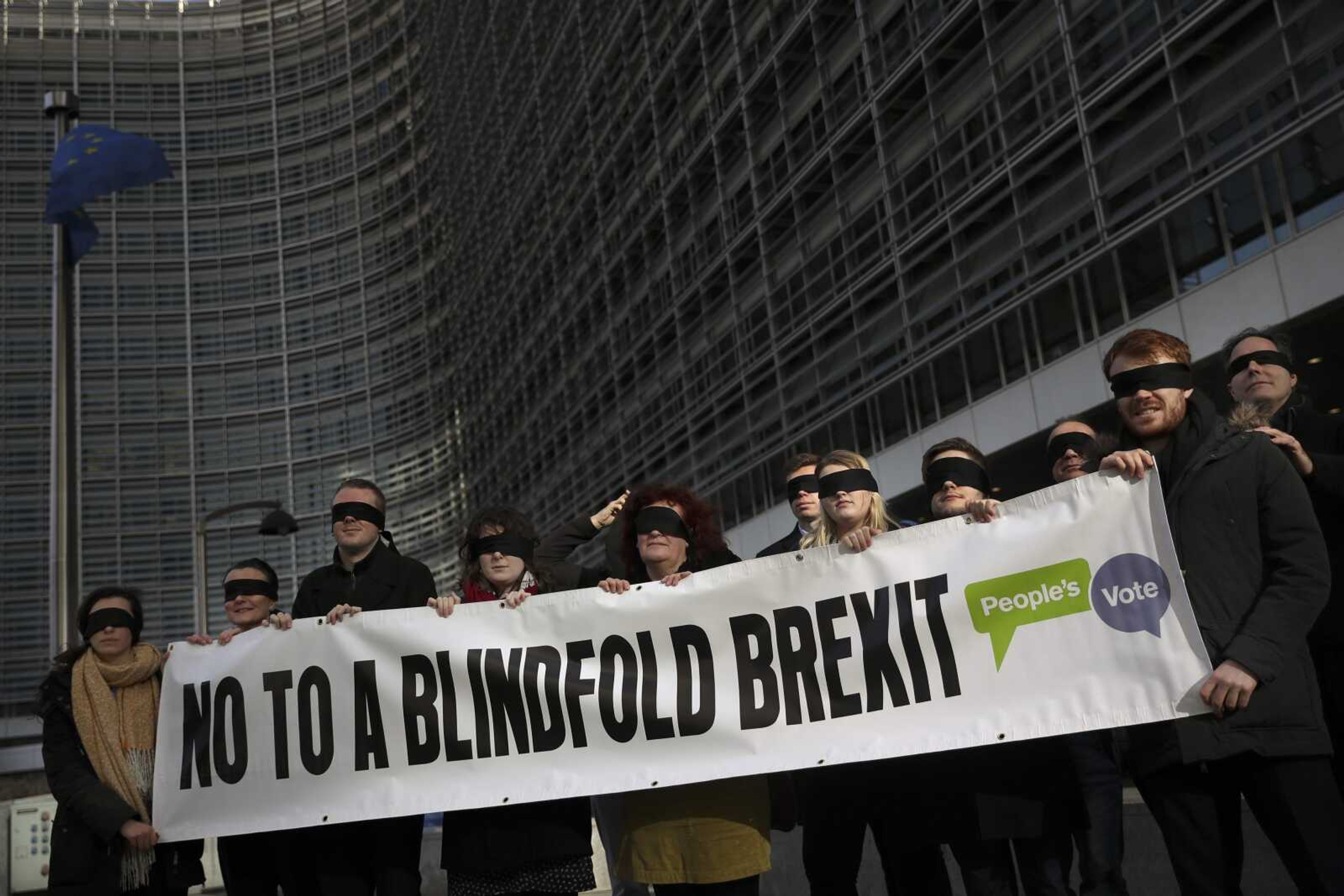UK, EU leaders spar during 'robust' Brexit talks
BRUSSELS -- British Prime Minister Theresa May and EU Commission President Jean-Claude Juncker sparred on Thursday during "robust" talks on the U.K.'s Brexit plans, and agreed to hold more negotiations that could push the sealing of any deal to within a month of Britain's scheduled departure...
BRUSSELS -- British Prime Minister Theresa May and EU Commission President Jean-Claude Juncker sparred on Thursday during "robust" talks on the U.K.'s Brexit plans, and agreed to hold more negotiations that could push the sealing of any deal to within a month of Britain's scheduled departure.
Looking at the ever tighter deadline and yawning divisions, May said "it's not going to be easy" but vowed: "I am going to deliver Brexit. I am going to deliver it on time."
The two leaders agreed to meet for more talks "before the end of February to take stock of these discussions," a joint statement said. Two years ago, May set Brexit day as March 29 -- and originally plans were to have a deal in place six months ahead of time.
Both sides still fundamentally disagree on whether a draft legal withdrawal agreement could be changed to take the latest British objections into account, greatly reducing the chances of a quick breakthrough.
"The EU27 will not reopen the Withdrawal Agreement, which represents a carefully balanced compromise between the European Union and the U.K., in which both sides have made significant concessions," the joint statement said.
The simmering tension was evident in the leaders' body language as they met in a stiff ceremony.
Instead of his usual jovial kisses, Juncker held out his hand for May to shake and quickly ushered her off into his offices. One reporter shouted at her: "Is this hell, prime minister?"
It was a reference to comments by European Council President Donald Tusk, who exacerbated the frosty climate on Wednesday by wondering aloud what "special place in hell" might be reserved for those who backed Brexit with no idea of how to deliver it.
Highlighting the sensitivities, a public welcome appearance on camera between May and Tusk was canceled hours before the encounter.
U.K. officials said May's primary concern was not to be "trapped" in a system that could see Britain linked to the EU in a customs union for an indefinite time.
Britain's Parliament voted down May's Brexit deal last month, largely because of concerns about a provision for the border between the U.K.'s Northern Ireland and EU member Ireland. The mechanism, known as the backstop, is a safeguard that would keep the U.K. in a customs union with the EU to remove the need for checks along the Irish border until a permanent new trading relationship is in place.
Thursday's statement said May "raised various options for dealing with these concerns in the context of the Withdrawal Agreement."
Many pro-Brexit British lawmakers say they won't vote for the withdrawal agreement unless the backstop is removed.
May is seeking changes in the 585-page legally binding withdrawal agreement to achieve that, something which the 27 other EU leaders continue to vehemently oppose.
Juncker and the other EU leaders have agreed to look for a compromise in a political text accompanying the withdrawal agreement, but not in the legal document itself.
In London, there was significant momentum from the opposition, with the Labour Party making perhaps its biggest move in months.
Party leader Jeremy Corbyn dangled a possible way out of the impasse, saying his left-wing party could support a Brexit deal if May committed to seeking a close relationship with the EU after Britain leaves, including a commitment to maintain roughly equivalent standards in areas such as the environment and workers' rights.
Corbyn's key demand, set out in a letter to May, is permanent British membership in a customs union with the EU. May has repeatedly ruled that out, but it would solve the problem of the backstop, by making customs checks on the Irish border unnecessary.
It is the firmest signal yet that Labour lawmakers might be willing to vote for a Brexit deal in Parliament. But the party -- like May's Conservatives -- is divided. Corbyn's position disappointed some Labour Party legislators who had hoped he would back calls for a second referendum on whether to leave the EU.
Britain's Parliament is set to hold a debate and votes Feb. 14 on next steps in the Brexit process, giving lawmakers a chance to force May to change course toward a softer Brexit -- if divided lawmakers can agree on a plan.
Corbyn said Thursday that Labour would "do everything we can in Parliament to prevent this cliff-edge exit."
"Half of our trade is with Europe. A lot of our manufacturing industries are very frightened, very worried," he said.
Connect with the Southeast Missourian Newsroom:
For corrections to this story or other insights for the editor, click here. To submit a letter to the editor, click here. To learn about the Southeast Missourian’s AI Policy, click here.









